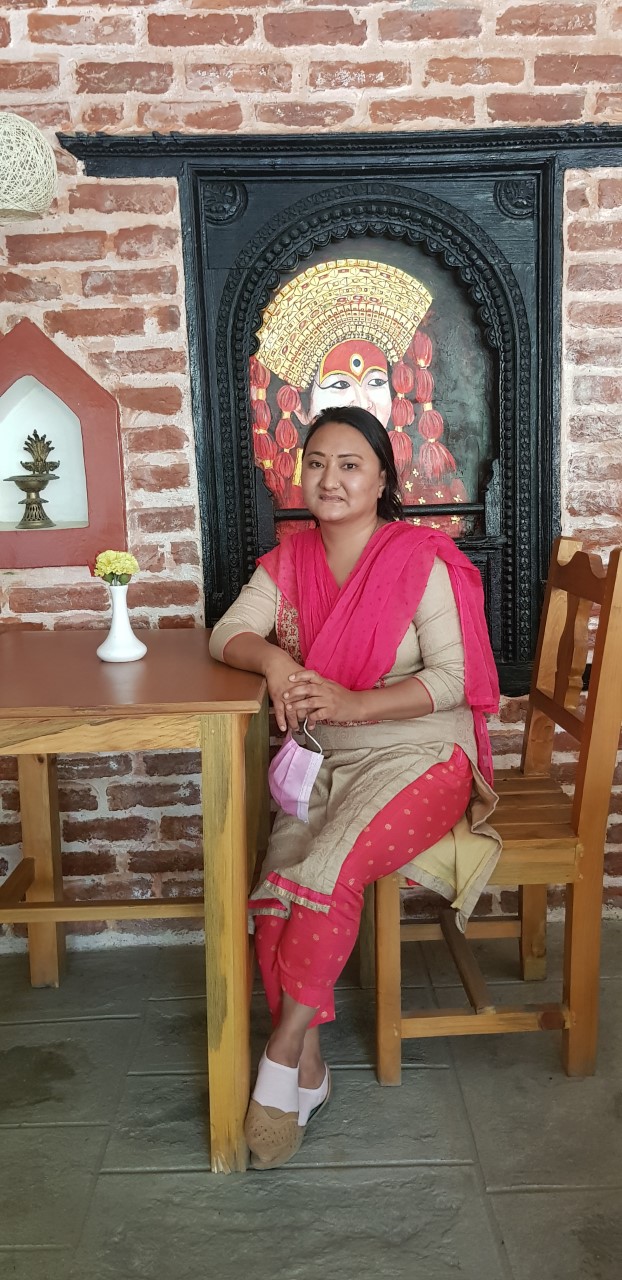
Neetam started working in tourism right after her intermediate high school exams, also known as School Leaving Certificate (SLC) exams, in 2008. Starting as a trainee, she studied tourism in her high school, received a Bachelor’s in travel and tourism, and eventually pursued a Master’s in Nepalese culture, history, and architecture. To support her work further, she got a diploma in tourism. After having gained experience in the industry, she started her first tourism company Hiking Nepal Travel Consultancy in 2016. Three years later she started Treks Planner Nepal.
Before the lockdown, she had always stayed busy. For the initial two months of the lockdown, she felt depressed, frustrated, and got irritated on seeing people. Family and friends used to ask her how she was doing, which triggered her even more. She took care of herself and started learning music. She thought everything would go back to normal by October.
Contrastingly, in October, the tourism entrepreneurs had to face unexpected pressures- including from the government. The government asked for taxes: they had to pay extra fines to renew their company at the Nepal Tourism Board (NTB).
To reduce the running costs, one of Neetam’s company reduced to two staff from ten and cut the pay of the paid shareholders. She says that it was much easier earlier. They earned “in season” (i.e. the peak time of tourists arrival that usually lasts from September to November and March to May) and used this to run costs in the offseason. There used to be around 40 to 42 trek groups in the high season and around 5 to 10 groups during the off-season.
At present, there is no business. A few expeditions are being organized but the workers are not being paid. Her company runs on credit as it needs to pay off loans to multiple stakeholders which have depleted Neetam’s reserve even further. Left with little doors to knock on, she questions, “What to do next? Currently, even the banks don’t agree to loans for the tourism sector”.
There are multiple associations and agencies such as the Trekking Association of Nepal (TAN), Nepal Association of Travel Agents (NATA), Nepal Tourism Board (NTB) to support the businesses and workers but Neetam argues she has received is no help. “Why did we even place a bank guarantee at Nepal Tourism Board (the government authority responsible for developing and marketing Nepal as an attractive tourism destination)?” she questions. She believes that holistic thinking is needed while formulating policies.
As she reflects on how the associations and agencies could support entrepreneurs like herself as recalls a scheme put forward through the Trekking Association of Nepal (TAN) to provide loans to informal workers in the tourism industry. However, the catch in the scheme was that the tourism company, through which workers applied for the loan, had to stay as a guarantee. “Our work is not contract-based, how can we stay as someone else’s guarantee. I had to pay off the amount taken by someone else once.” She hints at the informality of the sector and how it affects accessing resources, even when they are made available.
Neetam, similar to many entrepreneurs, contemplates whether she even wants to continue in this field or leave it altogether. She leaves the conversation with a hesitant smile- unsure what paths lie ahead for the industry and for her companies.